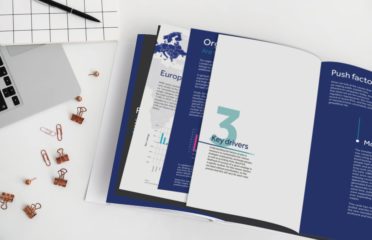Globacap has been recognised as one of the UK’s fastest growing tech firms by Deloitte, with revenue growth of almost 600% since 2019. Globacap ranked…
Published on: April 27, 2020
What will Covid-19 mean for investment trends in start-ups?

Investment trends in the start-up world have been deeply disrupted by Covid-19. Some sectors, like pharma and biotech, are basking in the hype that comes with the search for treatments and vaccines. In others, like fintech and consumer products, VCs are slowing their pace as the lockdown hastens consolidation. Some fundraises are still closing, it’s true, but many were already at an advanced stage when the crisis hit.
The overall picture is one of unprecedented uncertainty for founders. A global survey by Startup Genome, a US consultancy, reports that $28bn in start-up funding will simply “go missing” in 2020. In the UK, the government has announced a £1.25bn bailout plan for VC-backed businesses, including £500m for those with the most potential to help battle Covid-19. But these measures will take time to implement, and won’t be available to everyone.
So what are the trends we’re seeing in different sectors? What will be the next investment trends as the global economy begins to recover? And, ultimately, how can founders make sure their business ticks the boxes of prospective investors? Here we take a look at three of the most-affected industries and offer some advice to growing firms on how to stand out.
Fintech: time for consolidation?
Fintech has been one of the hottest sectors of recent years but VCs are reporting a significant slowing in their investments, according to interviews carried out by TechCrunch. Valuations are lower, for one thing, and the crisis has exposed a gulf between the best and worst performing companies. This is making investors choosier and implies a “flight to quality” which could spell longer-term consolidation in the most over-hyped parts of the fintech market.
Managing a start-up team can be all-consuming and there is also evidence that founders are simply so focused on the short-term struggle for survival they have little time to think about raising new capital. Startup Genome’s survey found that 41% of start-ups worldwide have less than three months’ cash available; it’s certain that this will sadly prove terminal for many of them. But it also means that, once the recovery takes hold, there will be more VC money to go round for the most resilient and innovative fintech firms.
Life Sciences: here’s to good health
Covid-19 may have brought whole countries to a standstill but the fundraising market has not completely ground to a halt. Perspectum, an Oxford-based start-up which diagnoses and monitors liver disease, secured £28.8m ($36m) of funding in April. In the US, venBio, a Californian VC, closed a $394m oversubscribed fund at the start of the month, bringing the firm’s total AUM to around $1bn. Healthcare fundamentals have such long-term strength that it’s difficult to imagine investors abandoning it in great numbers.
Moreover, Life Sciences is enjoying fresh flush of global attention precisely because of Covid-19. Start-ups are scrambling to meet new demand; Perspectum has just announced a project to map organ health in the wake of the virus and, as already noted, governments are pouring money into vaccine development and other mitigation. The UK bailout scheme announced this week follows similar initiatives in Germany and France. So with confidence swelling, many Life Science start-ups will have the maximum opportunity to weather the current shocks and continue to attract investment.
Consumer start-ups: food for thought
Home fitness apps, gaming platforms and chat services have seen record spikes in user numbers since people became confined to their homes. But it’s not all rosy for these businesses; furloughed workers feeling the pinch are cutting back on non-essential spending, which will hit revenues for subscription-based start-ups for months. Even in dining, Deliveroo, one of the iconic companies of recent years, came close to collapse because of plummeting orders during the lockdown.
The difficulty for investors in consumer-focused start-ups is uncertainty about what the economic recovery will look like when it comes, and how spending habits will be altered. For now, non-essentials are out, so VCs will be looking for companies that cater to a proven need among consumers, and have hard evidence of the product’s popularity and resilience. Start-ups that can offer this will be in demand.
To ensure your own business ticks the boxes of today’s investor, download our free checklist today.



